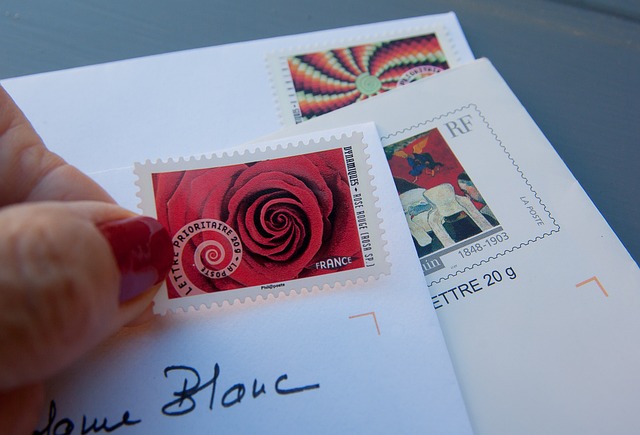In today’s globalized world, cultural translations go beyond mere word-for-word substitutions. Ensuring quality involves a deep understanding of cultural nuances, precise language choices, and tailored localization. This comprehensive guide explores essential aspects of UK cultural translation services. From recruiting expert linguists to leveraging technology, we delve into strategies that safeguard accuracy and authenticity in cross-cultural communication. Discover how best practices, case studies, and future trends shape the landscape of UK cultural essays and analyses translations.
- Understanding Cultural Nuances: The Foundation of Accurate Translation
- Recruitment and Training: Building a Team of Cultural Experts
- Authenticity in Language Choice: Reflecting the Source Culture
- Adapting to Context: Localizing for Specific Audiences
- Quality Assurance Processes: Ensuring Consistency and Precision
- The Role of Technology: Tools for Efficient and Accurate Translation
- Collaboration with Native Speakers: Peer Review and Feedback
- Case Studies: Success Stories in UK Cultural Translations
- Overcoming Challenges: Common Pitfalls and Their Solutions
- Future Trends: Innovations in Cultural Translation Services
Understanding Cultural Nuances: The Foundation of Accurate Translation

Understanding cultural nuances is the foundation for achieving accurate translations, particularly in diverse countries like the UK with its rich cultural tapestry. When translating essays and analyses, especially those rooted in a specific culture, translators must go beyond mere word-for-word substitutions. They need to grasp the subtleties, idiomatic expressions, and contextual meanings that may not have direct equivalents.
This involves delving into the UK’s cultural landscape, exploring its unique social norms, values, and historical contexts. UK Cultural Essays and Analyses Translation Services that excel in this area employ native speakers or experts familiar with British culture to ensure the translated content resonates authentically with the target audience. This cultural sensitivity is crucial for conveying the intended message and avoiding potential misunderstandings, making accurate translation a paramount goal.
Recruitment and Training: Building a Team of Cultural Experts

In the realm of cultural translations, particularly for UK-based Cultural Essays and Analyses Translation Services, recruitment and training are pivotal to building a team of cultural experts. The process begins with identifying individuals who possess not only linguistic proficiency but also a deep understanding of diverse cultures, historical contexts, and social nuances. This involves screening candidates based on their educational backgrounds, previous experiences, and demonstrated ability to grasp and convey subtleties in different languages and cultural settings.
Training programs should be comprehensive, encompassing both theoretical knowledge and practical application. Workshops, webinars, and immersion sessions with native speakers can enhance the team’s skills in handling idiomatic expressions, proverbs, and cultural references that may not have direct translations. Continuous learning is essential to keep up with evolving language use and cultural shifts, ensuring that the translation services provided remain accurate, relevant, and respectful of the source culture.
Authenticity in Language Choice: Reflecting the Source Culture

When translating cultural content, maintaining authenticity is paramount. This involves carefully considering the language choices to reflect the nuances and idioms of the source culture. UK Cultural Essays and Analyses Translation Services should aim to preserve the original intent and meaning while ensuring accurate transmission into the target language.
For instance, certain expressions or metaphors might hold specific cultural significance in their original form. A skilled translator will understand these subtleties and find equivalent ways to convey them, thus maintaining the essence of the source culture throughout the translation process. This attention to detail is crucial when navigating the complexities of different languages and ensuring a culturally sensitive end product.
Adapting to Context: Localizing for Specific Audiences

In the realm of cultural translations, adapting content for specific audiences within the UK involves more than just linguistic proficiency. It requires a deep understanding of the target culture and its nuances. Translation services that excel in this area delve into the context, exploring how concepts and ideas resonate with diverse reader groups. For instance, a UK-based cultural essay might discuss themes that are universally appealing but also have regional sensitivities. The task then becomes localizing these essays to ensure they connect with readers from various ethnic backgrounds, without compromising the original intent or meaning.
This contextual adaptation is especially crucial for UK Cultural Essays and Analyses Translation Services. Translators must consider not just words but also idioms, cultural references, and even subtle humor that might not translate directly. They navigate the intricate tapestry of British culture, ensuring that the translated work resonates with the audience’s values, beliefs, and experiences. This level of localization fosters a deeper connection between the content and its readers, making it an indispensable practice for high-quality translations in the UK market.
Quality Assurance Processes: Ensuring Consistency and Precision

In the realm of UK cultural essays and analyses translation services, quality assurance processes play a pivotal role in ensuring consistency and precision. These rigorous protocols are designed to maintain the integrity of the original work while adapting it for a new linguistic and cultural context. One of the key aspects is the involvement of native speakers who not only possess expert language skills but also understand the nuances and idiomatic expressions specific to their culture. This ensures that translations are not just word-for-word, but accurately convey the intended meaning and tone.
Moreover, quality assurance includes multiple rounds of review and editing. Translators often collaborate with subject matter experts who verify the accuracy of technical terms, historical references, and cultural specifics. Automated tools, such as translation memory software, also come into play to maintain consistency in terminology across different projects. This comprehensive approach guarantees that UK cultural essays and analyses remain faithful to their original essence, making them invaluable resources for readers worldwide.
The Role of Technology: Tools for Efficient and Accurate Translation

In today’s globalized world, technology plays a pivotal role in ensuring quality within cultural translations. Advanced translation software and machine learning algorithms have become indispensable tools for UK Cultural Essays and Analyses Translation Services. These technologies enable efficient processing of vast amounts of text, facilitating quick turnaround times without compromising accuracy.
For instance, neural machine translation (NMT) models, trained on large datasets, can capture nuanced linguistic structures and cultural references more effectively than traditional methods. Additionally, automated translation memory (TM) systems store previously translated segments, allowing for consistent terminology and reducing the risk of errors. By leveraging these tools, UK cultural translation services can maintain high standards, providing clients with accurate and culturally sensitive content that resonates across borders.
Collaboration with Native Speakers: Peer Review and Feedback

In the realm of UK cultural essays and analyses translation services, collaboration with native speakers is paramount to ensuring quality. Peer review and feedback from individuals immersed in the source culture play a pivotal role in preserving nuances, idioms, and contextual meanings that might be lost in translation. By engaging native speakers, translators can access valuable insights into cultural subtleties, ensuring the translated content resonates authentically with the target audience.
This collaborative approach involves rigorous peer review processes where multiple native speakers scrutinize the translation for accuracy and cultural appropriateness. Their feedback helps identify any conceptual or linguistic missteps, enhancing the overall quality of the final output. Such collaboration not only improves the accuracy of translations but also fosters a deeper understanding of cultural nuances, making the translated essays and analyses more impactful and relevant to UK audiences.
Case Studies: Success Stories in UK Cultural Translations

In the realm of UK cultural essays and analyses, translation services play a pivotal role in preserving and enhancing the essence of diverse works across languages. Success stories abound, showcasing the delicate balance between accurate rendering and artistic integrity. One notable example involves the translation of a seminal British literary work from English to French. The project demanded not just linguistic proficiency but also a profound understanding of Victorian literary nuances and cultural subtleties. The translators meticulously navigated character motivations, symbolic language, and societal context, resulting in a French adaptation that captivated readers, preserving the original’s spirit for a new audience.
Another inspiring case involves a UK museum collaborating with translation specialists to create an exhibit exploring British history through diverse cultural lenses. This project required not just linguistic expertise but also cultural sensitivity and historical acumen. The translation team ensured that interpretations of complex historical events and nuanced cultural perspectives were accurate and respectful, fostering cross-cultural understanding. The successful launch of this exhibit underscores the importance of high-quality translations in promoting cultural exchange and appreciation, enriching both the UK’s cultural landscape and global audiences’ experiences.
Overcoming Challenges: Common Pitfalls and Their Solutions

Future Trends: Innovations in Cultural Translation Services

The future of cultural translations is being reshaped by innovative technologies and a deeper understanding of cross-cultural communication. In the UK, where cultural diversity is thriving, demand for accurate and nuanced translation services is growing. Artificial Intelligence (AI) and Machine Learning (ML) are playing a significant role in enhancing efficiency and precision. Advanced AI tools can now analyse vast amounts of data, enabling translators to access cultural context, idiomatic expressions, and regional variations with just a click. This ensures that translations not only convey the literal meaning but also capture the essence and intent behind the original text.
Moreover, the integration of virtual reality (VR) and augmented reality (AR) in translation services opens up new possibilities for immersive experiences. UK Cultural Essays and Analyses show that these technologies can be utilised to create virtual environments where translators can immerse themselves in different cultures, enabling a deeper understanding of symbolism, metaphors, and cultural nuances. This innovative approach promises to elevate the quality of translations, making them more effective and culturally sensitive, catering to the diverse needs of modern UK society.
In the realm of UK cultural essays and analyses translation services, achieving quality requires a multifaceted approach. From appreciating cultural nuances that underpin accurate translation to leveraging technology for efficiency, each step—including recruitment, training, authenticity, adaptation, quality assurance, collaboration with native speakers, and addressing challenges—plays a crucial part. By embracing these strategies, professional translators can deliver nuanced, contextually relevant, and high-quality translations that preserve the integrity of the source culture while resonating with specific audiences. This ensures not just linguistic proficiency but also cultural competence in the global landscape.
